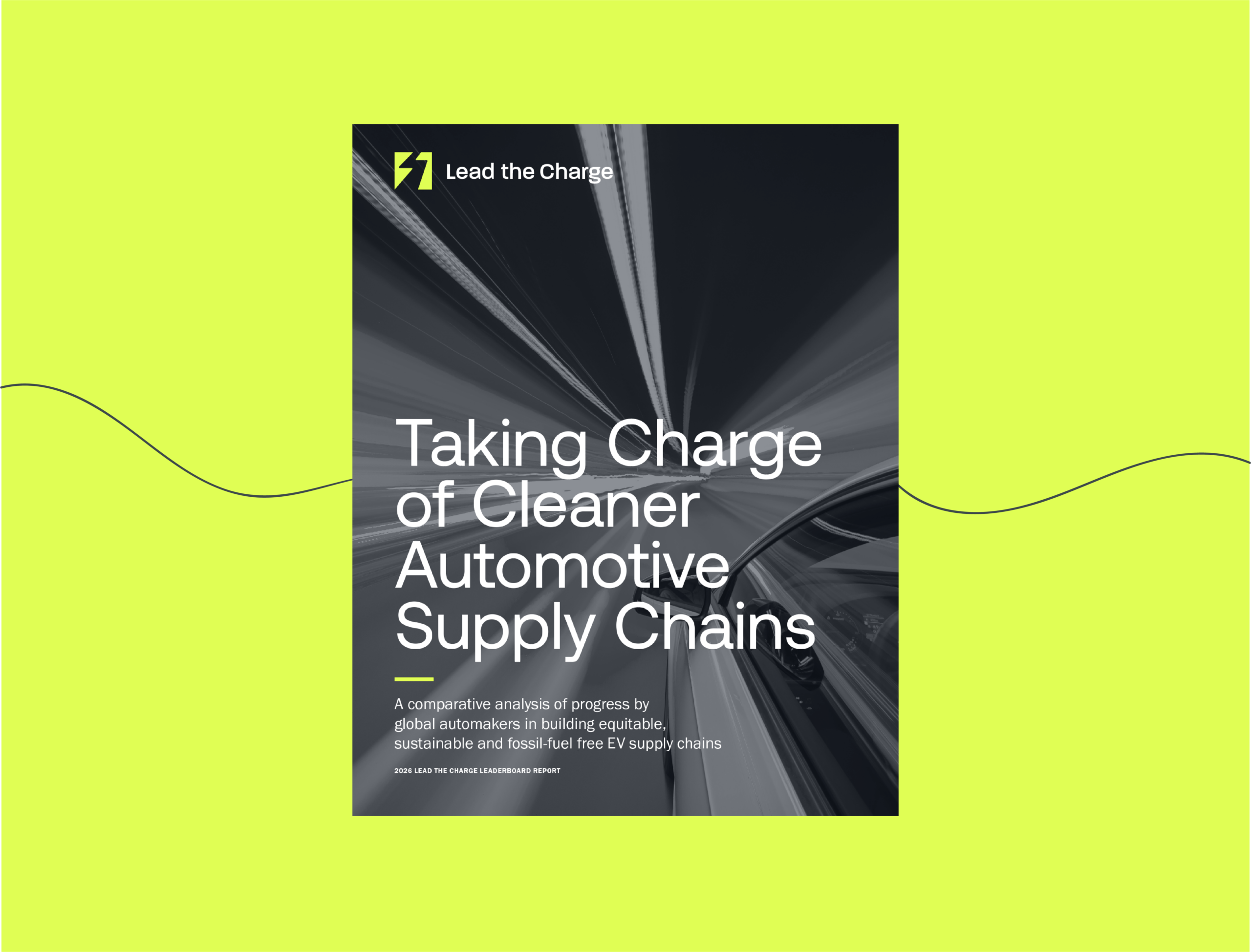Automakers are the largest consumer globally of batteries and many of the minerals needed to produce them, including lithium and cobalt. The auto industry is also a major global consumer of other battery minerals such as nickel. It therefore has an opportunity to use its outsized leverage to clean up the emissions and wider environmental impacts of battery supply chains, from mining to manufacturing.
This means taking actions at the level of battery manufacturing but also, since how battery materials are produced and sourced can have a significant impact on the overall carbon footprint of a battery and can also cause other negative environmental impacts, at the level of mineral extraction and refining.
What can automakers do?
At the level of battery manufacturing, automakers can:
- Set targets to reduce, and ultimately eliminate, emissions from their battery supply chains, as well as to reduce their reliance on energy intensive minerals in battery production.
- Require battery manufacturers to use 100% renewable energy.
- Support and invest in Research and Development into new battery chemistries that are less emissions and mineral intensive, such as solid state batteries, which have a lower carbon footprint from the outset than today’s chemistries and could be manufactured without cobalt or nickel, and sodium-ion batteries, which have “the potential to completely avoid the use of critical metals.”
- Implement closed loop processes and broader material efficiency strategies to increase recycling, recovery rates and reuse of batteries and battery minerals, which will reduce both emissions and demand for critical minerals.
Automakers should also use their outsized leverage in global battery supply chains to reduce the emissions and broader impacts of battery mineral extraction and refining by:
- Undertaking equity investments, joint ventures, offtake agreements and other contractual agreements with suppliers to catalyze investment in and production of zero-carbon or, at the very least, low-carbon extraction and refining technologies.
- Implementing stringent environmental and human rights due diligence requirements for their suppliers to ensure that extraction of these minerals do not cause other negative environmental and human rights impacts.
